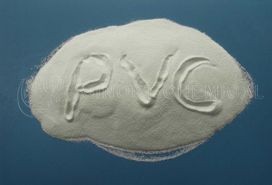What is PVC Resin?
Author: yisainuo Time: 2017/10/31PVC is an acronym for polyvinyl chloride. A resin is a material often used in the production of plastics and rubbers. PVC resin is a white powder commonly used to produce thermoplastics.
Other members of the vinyl family can be used for similar applications, but PVC tends to be the most popular member of that family. It is believed to be superior to other options because it can be produced in numerous forms and used to create a wide array of items for many industries. Products made with PVC resin include blood bags, windows, and pipes.
Production of PVC resin generally relies heavily on the use of chlorine and crude oil. There are four manufacturing processes commonly used in its production. They are the suspension method, the mass method, the emulsion/dispersion method, and the solution method.
PVC resin alone is a raw material. It can be made into products with a wide range of properties from soft and flexible to light and rigid. The outcome is often determined by additives. Other ingredients must typically be added to convert this resin into a finished product. These can include heat stabilizers, lubricants, and fillers. One of the most common types of additives to be blended with PVC is plasticizers, such asbutyl glycolate, epoxy resins, and dialkyl azelates.
There are many benefits in plasticized PVC. Since it is a thermoplastic, meaning it can be melted down and reformed, PVC is often produced into sheets that will be reworked later. These are normally hard.
When plasticizers are added, the material tends to become much more flexible and pliable than it otherwise would be. The chemical resistance, stress resistance, and puncture resistance can also be increased. PVC in the plasticized form is extremely popular.
PVC resin generally has a high level of chemical resistance. This may not be seen, however, when the material is exposed to organic chemicals. PVC is also strong and resistant to water and abrasion. This material is very popular in the construction industry. It can be used to produce many items needed in the building process. Those items are often lightweight, long lasting and maintenance-free.
One weakness of PVC resin is ultraviolet exposure. The negative effects can often be reduced by additives such as plasticizers. In most cases, however, it is recommended to avoid this type of exposure.
Prev Article:What is Iron Oxide?
Next Article:What is Titanium Dioxide?
(1).png)

.jpg)
.jpg)
.jpg)
(1).jpg)
.jpg)
.jpg)
.jpg)
(2).jpg)

